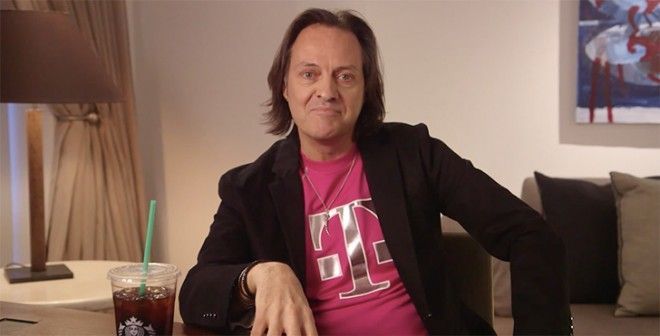John Legere has brought about a lot of change in the mobile industry since he took over T-Mobile, launching Un-carrier moves that led other carriers to do things like move away from contracts and offer rollover data. And in a new interview, the T-Mo CEO has revealed what’ll make him put more pressure on the competition.
Newsweek today posted a profile on John Legere, covering his arrival at T-Mobile and the effects that his Un-carrier moves have had both on T-Mo itself and on the rest of the industry. For example, he’s raised the morale of T-Mobile employees and he got T-Mo from dead last place in the major four carriers to move past Sprint into third. Looking ahead, Legere tells Newsweek that he’ll push even harder to shake up the mobile industry and make things better for consumers if he’s able to acquire more spectrum. He added:
“There’s so much work to do on solving the problems of this screwed up wireless industry.”
The upcoming 600MHz spectrum auction is important to T-Mobile, not only because it offers more spectrum, but also because the spectrum that’ll be on offer is valuable low-band spectrum. Legere pushed for the FCC to set aside 40 megahertz — or half of the available spectrum — for smaller carriers, but the FCC rejected the proposal. There will still be 30 megahertz set aside for smaller carriers like T-Mo, though, which is still a nice portion of the airwaves that’ll be available.
While we wait for the spectrum to take place in 2016 and the spectrum to actually be put to use, which could take years, T-Mobile has been focused on using 700MHz spectrum to expand its coverage. The service, which offers improved service over long distances and good building penetration, is now available in around 170 markets and is expected to reach more than 350 markets by the end of 2015. T-Mo is confident in its 700MHz coverage, going so far as to launch a Lifetime Coverage Guarantee that’s focused heavily on it, but additional 600MHz spectrum could go a long way to helping make T-Mobile a more formidable competitor in the US wireless industry.
Via: FierceWireless
Source: Newsweek


